IVF clinics record increase in unattached single women wanting to become mothers
MORE single women are choosing to have babies without men than ever before, some IVF clinics reporting one in 10 of female clients are going it alone seeking access to donor sperm.
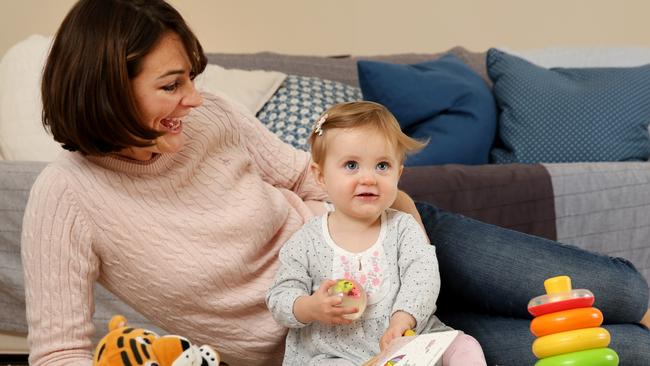
NSW
Don't miss out on the headlines from NSW. Followed categories will be added to My News.
MORE single women are choosing to have babies without men than ever before, some IVF clinics reporting one in 10 of female clients are going it alone seeking access to donor sperm.
An investigation by The Saturday Telegraph has found a diminishing social stigma attached to single parenting, ticking biological clocks and less concern among women about finding “Mr Right” are driving the surge of sisters doing it by themselves.
Clinics across the industry have recorded an increase in unattached single women wanting to become mothers — among the more than 30,000 women who access assisted reproductive technology each year.
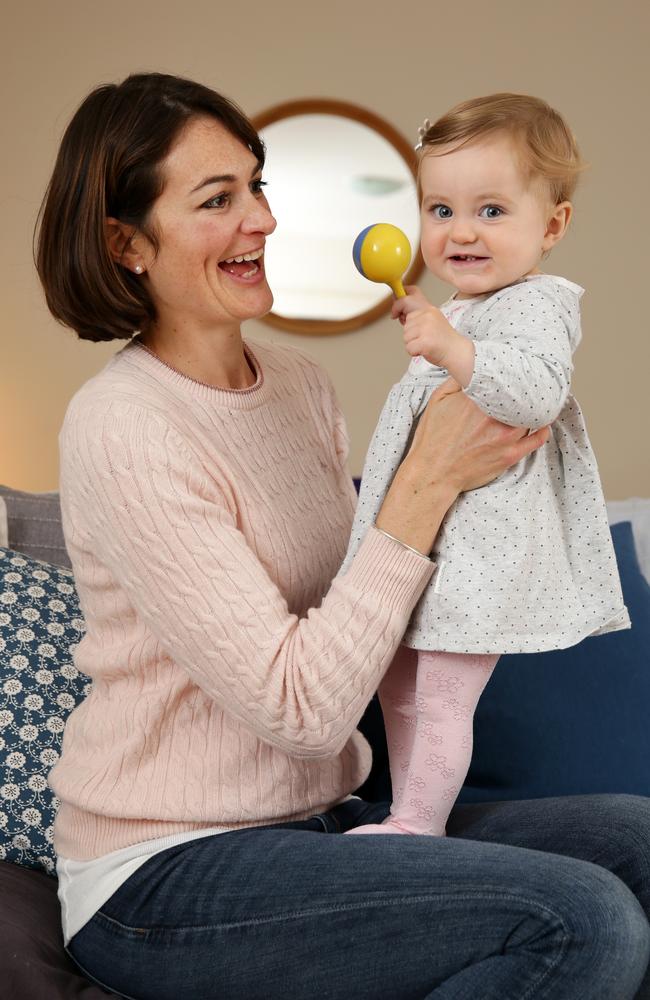
At Sydney-based Demeter Fertility, 10 per cent of IVF treatment cycles are single women with donor sperm — there were none performed in 2008.
At IVF Australia, which has 16 locations across NSW, 8 per cent of IVF treatment cycles are single women with donor sperm — up from 6 per cent in 2014.
Another Sydney-based IVF provider, Genea Fertility, reported 5 per cent of clients who walk through its doors are single women accessing donor sperm — a figure that has doubled over the last five years.
And in Victoria, Monash IVF, which describes itself as “the country’s most established IVF clinic and fertility program”, reported the number of single women taking up IVF services was growing 15 per cent each year.
Fertility Society of Australia president Michael Chapman said an estimated 600 to 800 women each year in Australia accessed donor sperm either as a single person or gay couple — a figure that has doubled over the past five years.
While there is no official breakdown of the categories, a study in 2012 found the Monash clinic performed almost three times as many IVF treatments for single women as it did for lesbians.
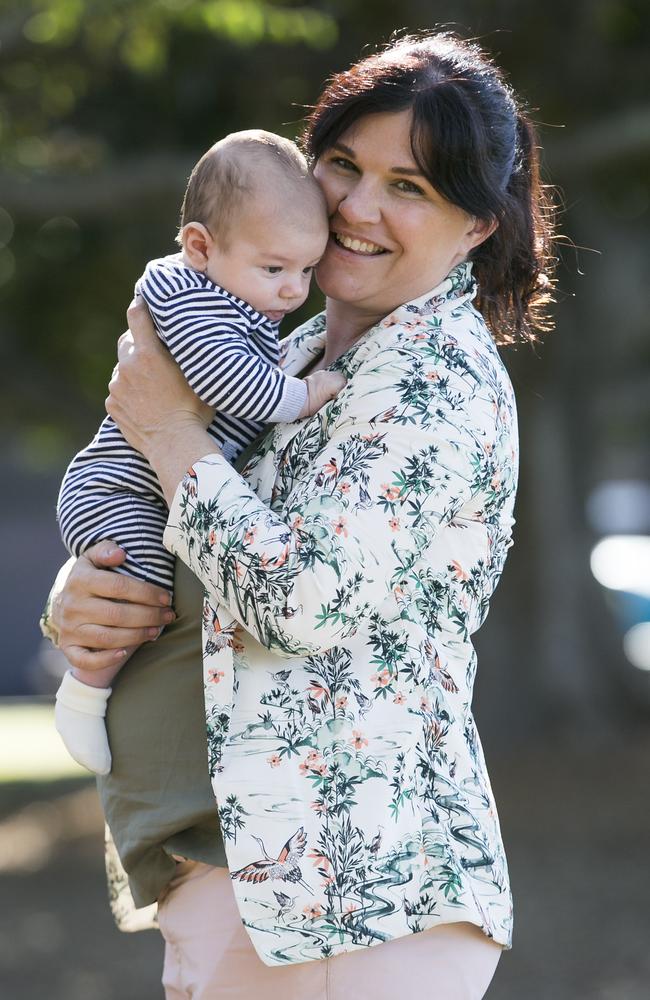
Over the past three years, Monash IVF has also seen the number of social egg freezing cases “more than double” as women become more educated about their long-term fertility options.
Mr Chapman said the spike in single women choosing to become mums could be attributed to “social change” that has occurred in recent years with women copping less blame for sole parenting.
“Finding Mr Right has also become more difficult — maybe women are becoming more choosy or men are not committing themselves in the way they did in the past,” he said.
Social analyst David Chalke said more women were going it alone due to a decline in the moral influence of organised religion and a greater acceptance of kids in families where the mum is not married.
DEAD BIKIE HAWI’S WIDOW NO LONGER WANTS SPERM
COST OF SURROGATE BABY CAN SURGE TO $80K
“While organised religion has faded in this country, so too have the morals dictated by it and as a consequence we’re far more relaxed about anything to do about sex, morality or marriage than we have been in the past,” he said.
Mr Chalke said that an AustraliaSCAN survey of 2000 adults that measured support for single women accessing IVF in 2001 showed 68 per cent were against it.
However, 2018 figures showed this has flipped and 52 per cent were now in favour. He said single women who became mothers without a male partner were now emerging as a demographic group in their own right.
“It is a demographic group — how large it is I suspect it might be an asterisk in most surveys but it really is a demographic … when you look at the driving forces behind it the signs are growing,” Mr Chalke said.
North Sydney mum Amanda, 46, went through IVF as a single woman to have daughters Zali, 5, and Quinn, 2. She agrees attitudes have changed.
“I think there’s less stigma around (single parenting) so people aren’t expected now to get married to have a family,” she said. Single women had their rights to access IVF confirmed in a 2002 High Court case.
Fertility services now routinely provide a dossier on the physical and emotional characteristics of potential sperm donors as they cater to an increasing number of single women.
Health Department figures show that in 2017 Medicare funded a total of 14,118 IVF cycles in NSW.
A spokesperson for Health Minister Greg Hunt said: “The independent MBS Taskforce, led by medical experts, is currently reviewing the assisted reproductive technology Medicare items and will present recommendations to the government.”
HOW TINY TASKS CAN GET HEAVY
SUMMER Hill mum Susan Mosey, 38, became a “single mother by choice” nine weeks ago when she gave birth to her son, Fox.
“I didn’t want to compromise and end up with someone for the sake of wanting to have kids so decided to do it on my own,” she said.
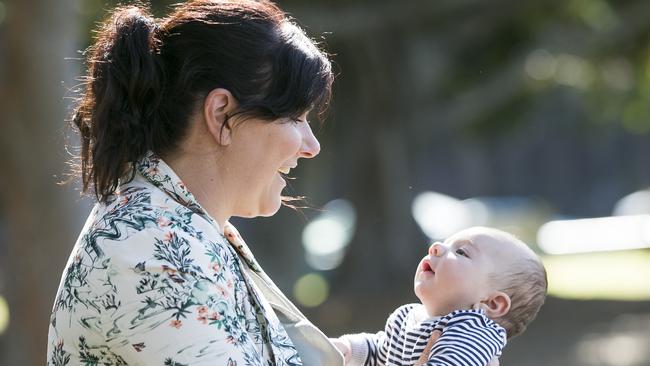
Ms Mosey, who found a sperm donor through IVF Australia, said being a single mum allowed her to give her undivided attention to her son.
However, she conceded managing a newborn made everyday tasks difficult.
“Getting petrol is hard because you have to get out of the car and then get the baby out,” she said.
“I’m always surprised how long it can take to get out of the house — the first time we left it took about an hour just to walk around the block.”
FAMILY’S LOVE AND A MUM’S STRUGGLE
BONDI mum Alex Martin, 40, was overwhelmed with support after deciding to go through Demeter Fertility to have her daughter Holly.
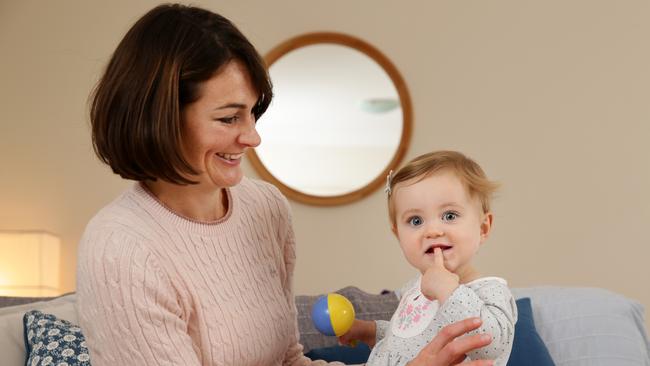
“I told them (family) I was thinking of having a baby by myself — not really having thought about it properly — and they were just so delighted,” she said.
But she said being a single parent with Holly, who is now one year old, could be lonely and was not without its struggles.
She said her first experience in an antenatal class was “awkward”.
